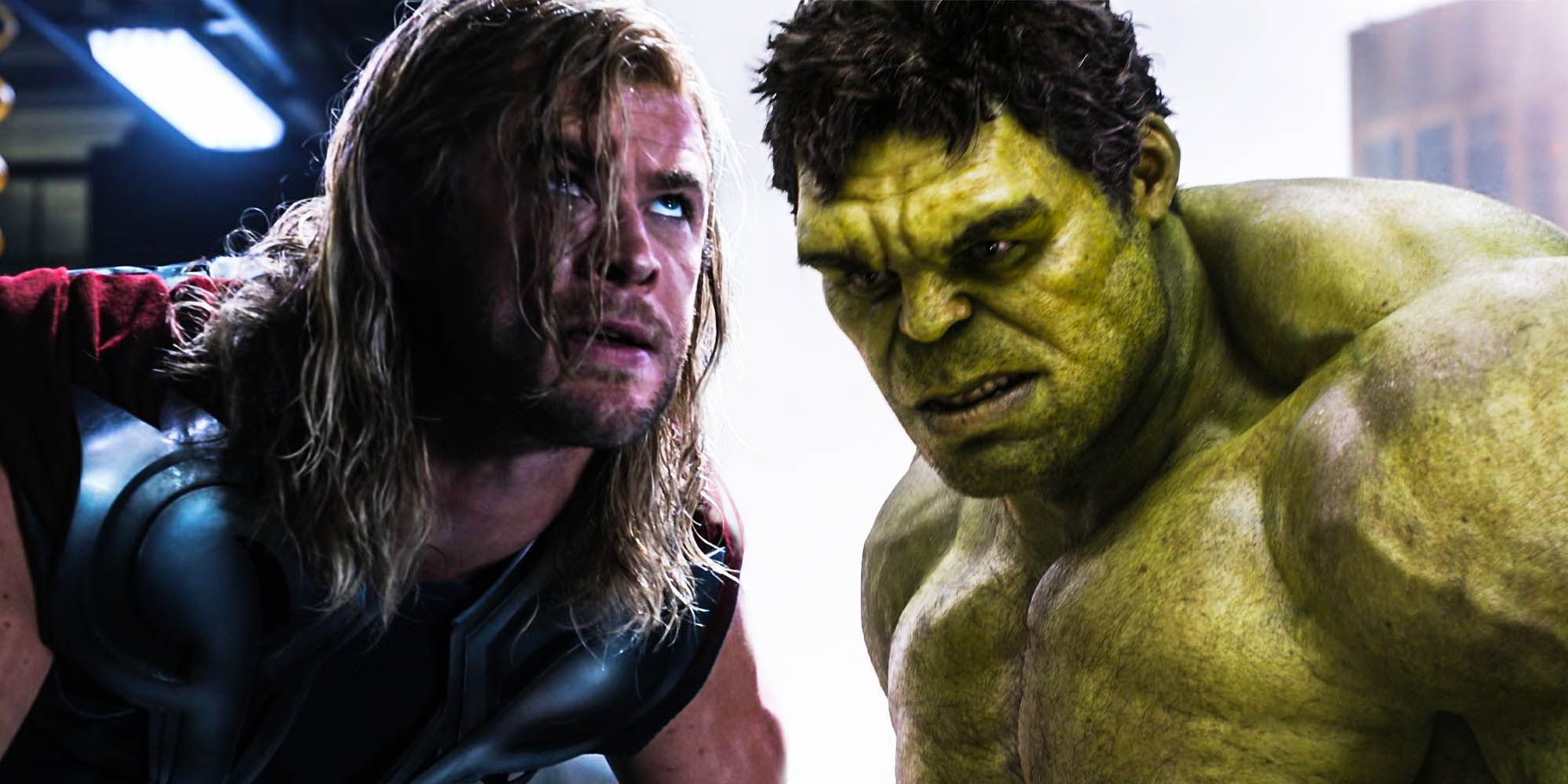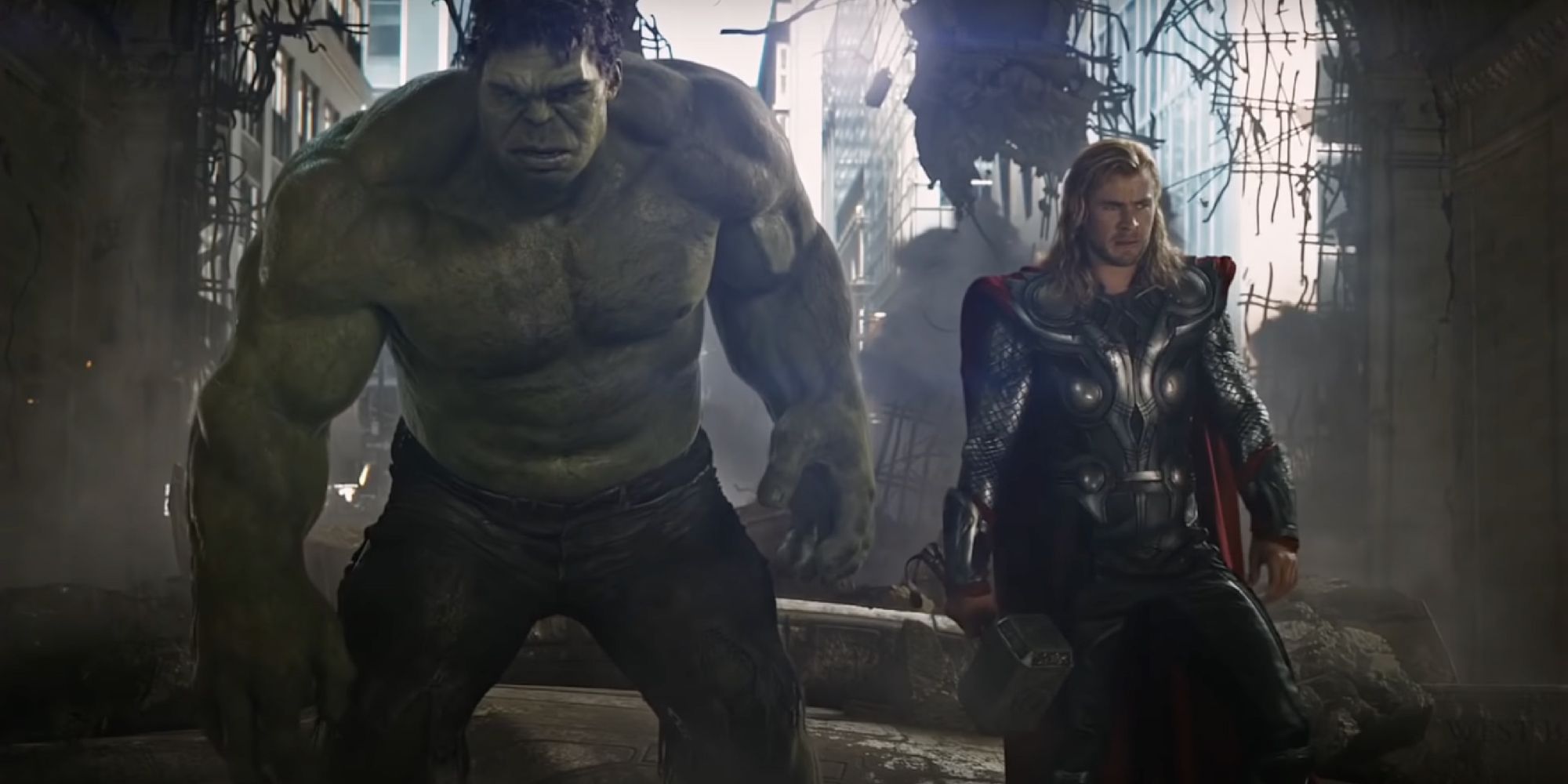12
While the debate over who the strongest Avenger is in the MCU now includes a variety of newer characters, it originated with 2012's The Avengers and primarily focused on Chris Hemsworth's Thor and Mark Ruffalo's Hulk. The friendly rivalry between the two characters sparked discussions between audiences over who the stronger of the two is, which were further fueled by their brief altercation in the S.H.I.E.L.D. Helicarrier. Phases 3 and 4 of the MCU introduced characters that are also gunning for the title of strongest Avenger, like Benedict Cumberbatch's Doctor Strange, Brie Larson's Captain Marvel, and Elizabeth Olsen's Scarlet Witch; but both Thor and Hulk remain frontrunners for the role.
The two characters have also changed drastically throughout their MCU journey following their appearances in the 2012 superhero ensemble. Avengers: Endgame revealed that Bruce Banner chose to merge his two identities, which in turn tamed the Hulk and made him less of a savage beast. Thor, on the other hand, lost his hammer Mjolnir in Thor: Ragnarok, but that led to him unlocking the full potential of his godly powers to save the Asgardian people. He also acquired a new weapon, Stormbreaker, in Avengers: Infinity War, which gave him even more powers, such as controlling the Bifrost.
When only taking the powers each character displayed in the first Avengers into consideration, Hulk comes out on top as the strongest Avenger over Thor. While this may not be the case in the current MCU, Hulk proved that he is more powerful than Thor multiple times throughout the iconic film. The quick brawl the two characters have in the middle of the film, their actions in the battle of New York, and their respective attempts at beating Loki (Tom Hiddleston) confirm that at least in the first Avengers film, Hulk was indeed the strongest member of Earth's Mightiest Heroes.
Even though both characters suffered the same fate after their fight on the Helicarrier (dropping from the sky), Hulk consistently overpowered Thor during the struggle, with Thor having to resort to Mjolnir to keep him at bay. This was referenced later in the film when Hulk sent Thor flying with a single punch in Grand Central Station. Additionally, Hulk's accomplishments in the battle of New York were more impressive than Thor's. Hulk was able to change the trajectory of a Leviathan by himself to stop it from demolishing a building, and stopped another from hitting the Avengers with a single punch after saying the iconic line "I'm always angry" to Captain America (Chris Evans). While Thor was able to bottleneck the portal with his lightning, his actions pale in comparison to those of the Hulk.
However, the biggest indicator that the Hulk was more powerful than Thor is the outcome of their respective attempts at stopping Loki. When Thor attempted to stop Loki atop Stark Tower, they are evenly matched, even with Black Widow (Scarlet Johansson) and Hawkeye (Jeremy Renner) helping Thor from their Quinjet. On the other hand, Hulk beat Loki without breaking a sweat in the now-iconic scene of him smashing Loki into the floor and calling him a "puny God."
The age-old question of who the strongest Avenger is will never be put to rest, especially now that more characters are being included in the discussion. All the evidence suggests that the Hulk was more powerful than Thor in The Avengers, but that might not necessarily be true today. As two of the three original Avengers left in the MCU, Thor and Hulk's journeys could be soon coming to an end. Fortunately, both characters are confirmed to have at least one more MCU appearance, with Thor gearing up for his fourth solo outing, Thor: Love and Thunder, and the Hulk playing a supporting role in She-Hulk. Only time will tell if audiences will ever get a true answer to the strongest Avenger debate, but as far as The Avengers goes, Hulk easily earns the title of Earth's Mightiest Hero.







